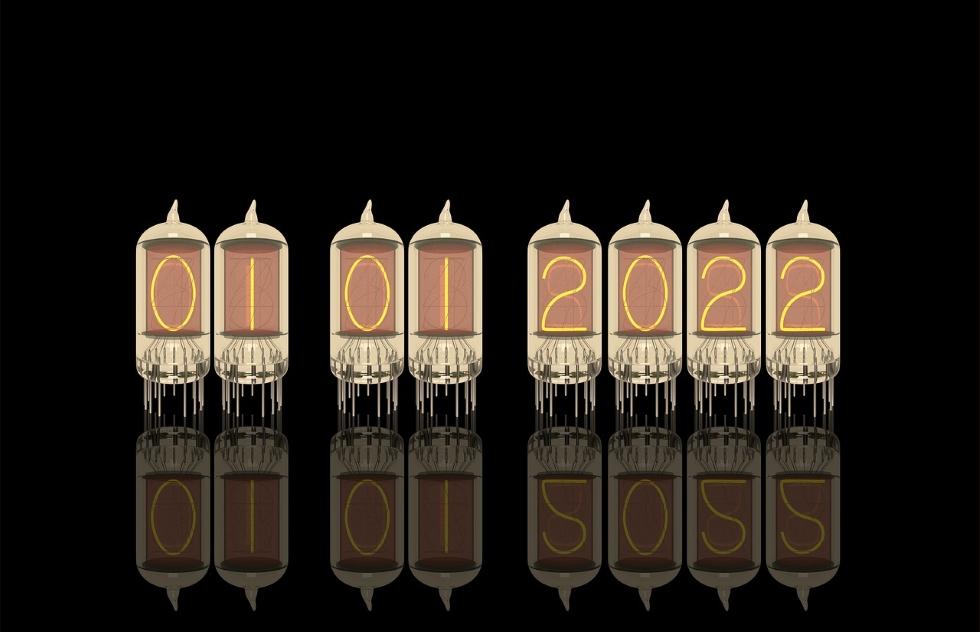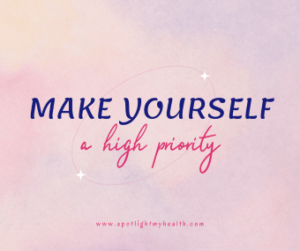It’s that time of year again. The time that many of us make New Year’s Resolutions or goals that we want to start our new year with, while hoping these new goals become habit. We want these new habits to make a good impact on our lives or health.
Unfortunately, many of us lose our way with our resolutions within a month or two.
According to the time management firm FranklinCovey, one third of resolutioners don’t make it past the end of January. And one of the main reasons we end up giving up so quickly is because we chose the wrong resolution.
Many of us also make the same type of resolutions or similar. New Year’s Resolutions about our weight, health, finances, exercise more, find a new job or travel are all in the top 10 resolutions that are made each January.
The problem seems that most of us don’t choose the right goal for ourselves. I’m going to share how to identify the right resolution for you then create a plan on how to reach that goal. You’ll then be part of the small group of people that successfully achieve their New Year’s Resolutions.
Why Do New Year’s Resolutions And Goals Fail?
There are basically three reasons that most resolutions fail. They are:
-The resolution is too vague.
-The resolution is created because of society or what someone else thinks you should change.
-No plan made to reach your goal.
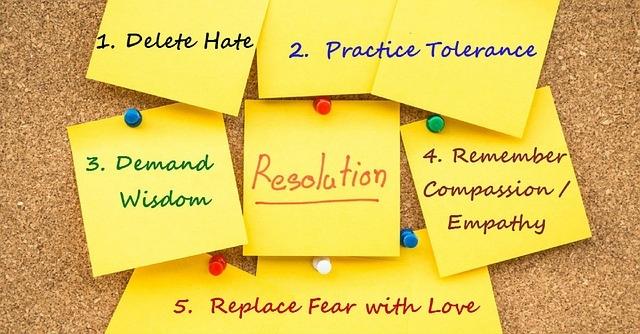
Any of this sound familiar? I’m going to suggest something else that I’ve taken from the journal Management Review in 1981.
I’m making my goals SMART. It’s an acronym that means:
Specific
Measurable
Achievable
Relevant
Time-bound
In other words, your resolutions or any type of goal should be planned around SMART. These goals need to be specific, measurable, achievable, relevant and have a time frame given to them. This gives you a better chance at being successful with your goals.
Specific
Your resolution should be absolutely clear. ‘I want to lose weight’, won’t cut it. It’s way too vague. “Ten pounds in the next two months — is more specific.
Measurable
Keeping track of progress in a journal, on your phone or in an app designed to help you track behaviors, reinforces your progress, no matter what your goal is.
For example, you decide you want to stop biting your nails. A good measurement to stay on track would be to take a picture of your nails every week. And if you gave yourself a time of two months, at the end of that that time, those pics you took would show your progress.
Achievable
This simply means breaking down your resolution so that you can actually achieve your end goal. Your goal can be as big or as small as you like. Just simply include smaller milestones to achieve on your way to the end goal.
Relevant
Choose goals that really mean something to you or improve your life in some way. Don’t chose something because ‘society’ or anyone you know says that’s the way things should be, and you need to conform. A relevant goal is specific to you with a meaning specific to you. This is what matters.
Timeframe
Timeframes for goals should allow for achievability and be realistic. This means giving yourself enough time to work toward the goal with lots of smaller intermediate goals set up along the way. By focusing on small wins, you show progress toward the bigger, but also have wins along the way. The small wins help with motivation to keep going.
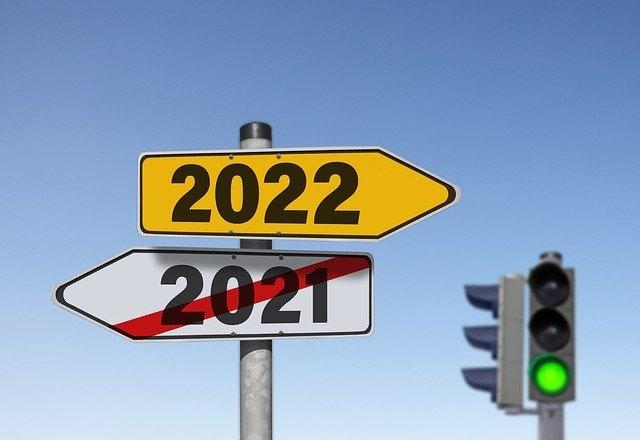
Another Way To Help New Year’s Resolutions Work
I have a friend that was recently chatting online about changing habits rather than having to go through rehab of any type. Rehab is much more challenging than changing a habit because of the drastic change to one’s life that rehab calls for.
Rather than go through a prolonged and challenging rehab such as cardiac, physical, drug/alcohol or cognitive rehab, why not make slight changes to your lifestyle over longer periods of time. A gradual modification of your habits, activities and diet so as not to need rehab of any type.
For example, trying to do a 180 degree turn of something like the size of a cruise ship is a huge undertaking. A ship that size can’t be stopped, easily or very quickly and takes a longer period of time. Like breaking a habit, it’s just too hard and not made to do a quick turn.
However, when that same ship makes that turn by considering a slight 10-degree change and continue doing this slight change for a longer period of time, the turn is made. The 180-degree turn is accomplished, and the passengers don’t even realize that a turn was made.
In other words, create the goal, plan many smaller steps, complete them, recover, then repeat. Baby steps with easily completed smaller goals, eventually lead you to the bigger goal. Slow, but steady and repeat. Seems much more obtainable to me.
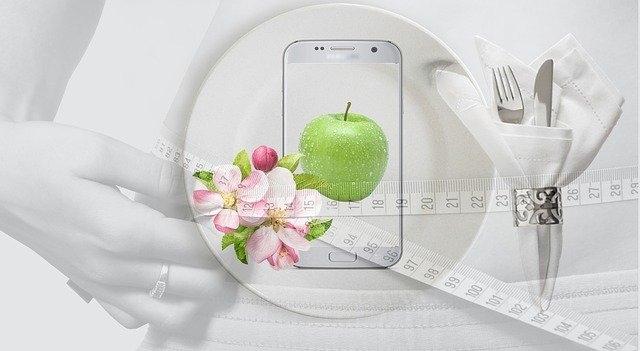
Two Different Ways of Reaching Goals, But Yet The Same.
I’ve made my New Year’s Resolutions or goals and of course, they are centered around my weight loss which many of you know I’m working on. Of course, I have fallen off the wagon, so to speak, over the holidays and I need to get back up there. Here is my plan.
-Set a Main Goal (Specific and Relevant)
To lose another 20 pounds in smaller increments at a time. I also want to drink more water. I usually have my share of water, but the last several months, I haven’t wanted any and I don’t
think that is good for weight loss. So, I want to start drinking at least 60 oz. of water daily.
-Plan Out Smaller Steps (Managable)
I’m not going to make specific smaller goals, but instead my smaller steps are to just weigh less than I did the week before. Even if this is just half a pound, it is still less than this week. Anyone who has ever had to lose weight knows that setting a goal of a specific amount could just be a pitfall. Like 20 lbs. in two months.
So, I just want to show a weight loss each week, no matter how big or small it is. Like the ship, slow but steady movement forward.
-Move More
I’ve pulled out my fitbit watch and have it going again. My plan is to move more each week. You all know I don’t like organized exercise, but I know I need to move more. My way of doing that will be to take more steps this week than I did last week.
-Keep Track (Accountability)
My fitbit has an app that I can keep track of steps, weight, what I eat, water intake, my sleep, etc. This is what I will use for accountability.
-Repeat and Do Again
I will repeat this plan each week until I’ve reached my original goal of a 20lb. loss.
Final Thoughts
Goals and changing habits are hard, so we need to make the changes as easy as possible to meet them. Like I said earlier, here are two different ways, yet the same, to help meet our goals.
I’m not looking at this as a goal only, but also as a challenge. Would you care to embark on this weight loss journey with me following the same goals? Or you can set your weight loss goal up differently than mine, but you would at least, be down 20 lbs. If this is a challenge you would like to take up, then let me know and we can cheer each other on. I dare you. I double dog dare you!
Stay Awesome!
Cher
Relevant Reading:
Why Personal Growth is So Important
Good Habits Change Your Life
Happy Within Will Change Your Life
If you enjoyed my post, pin it so you’ll have it for later, then share it—It would help me increase my readership and is a wonderful compliment!!

